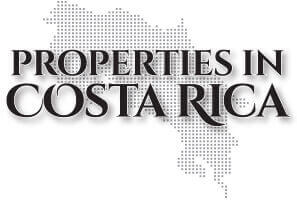Buying Process in Costa Rica
Search Your Property
Are you looking to purchase a home or land in Costa Rica? You have likely been searching properties for sale and perhaps have even found some options which interest you. Now you may be wondering how you go about purchasing this property and what the normal purchasing procedure is. A typical buying process in Costa Rica would go like this:
1.) Offer to Purchase. Once you have decided which property is the right one for you, the first step is drafting an OTP, which is the time when the terms and conditions of a sale will be agreed upon. An OTP is not a legally binding agreement.
2.) Sales Purchase Agreement. The OTP is next sent to an attorney, who drafts the more detailed Sales Purchase Agreement (SPA). Once signed, you as the Buyer are responsible to send the deposit (usually 10%, whatever is agreed upon in the SPA) to an internationally certified escrow account (unless otherwise agreed upon). The home is legally off the market once the deposit is made and is considered "under contract".
3.) Due Diligence. Typically this period of due diligence lasts 30 days, but more time can be negotiated. During this time the deposit is refundable if any item included in the diligence were to return unsatisfactory results. The deposit is NOT refundable if the buyer decided to change their mind for some other reason. Buyer typically pays for all due diligence items. These items
include:
-Check title of property and search for any leans, encumbrances, pending legal cases from past workers etc. The attorney will perform this investigation of both the title and the holding corporation.The buyer realtor can do a preliminary title search and look up the property in the national registry.
-A property survey completed by a topographer. This is optional and highly recommended if lines are unclean and not properly marked. This is an additional cost, which depends on the size of the property.
-Soil test, which is usually only taken for a raw land property. Core samples of the soil are taken and determine the soils stability. $800 for the report in English and 3 core samples plus a peculation test for where a septic tank would go (if the property has a finished home, this part is not needed). One may choose to test the soil above or below a home, where potential future building could take place. Always inquire if the owners have preformed this test prior to building.
-Home inspection, to assess the structure of the home, in order for the buyer to be fully informed of the condition of the home. This is not preformed in order to renegotiate the sales price based upon necessary repairs to the home. Homes are sold "as is". The cost of an inspection also depends on the size of the home, on average the cost is $800 for a single family home.
-Open a holding corporation. Quite commonly the attorney will recommend a buyer to open a new holding corporation to take possession of the property “asset”. The majority of properties are in a corporation for liability reasons, ease of paying bills in the company name and ease of passing the shares to beneficiary if something were to happen. There also remains the option of transferring the shares of the existing corporation into the buyer’s name. The cost of opening a new corporation range from $350 to $700.
- Prepare information for electric, phone, TV, internet bills and any insurance policies. Likely these services will be registered in the name of the existing holding corporation for the property.
4.) Remaining Balance Transferred. Once the due diligence period is completed satisfactorily, the buyer is required to transfer the balance for closing on the sale. This closing can take place between 5 to 30 days after completion of due diligence, date of closing would be negotiated in the SPA. These funds will remain in Escrow (if chosen) until the sale is finalized.
5.) Closing - Closing – The title is then transferred to your company name when you and seller sign the closing documents. You will have to physically be here for closing unless you leave a specific Power of Attorney (POA) for someone here. This POA is only for them to close on the home, nothing else. Closing costs are typically split by the buyer and seller. Total costs are around 4%, of that 1.5% – 2% for the attorney/notary fees and 2.5% for registration, transfer taxes, government stamps, etc. So you are looking at 2% on the buyer side (plus due diligence fee separate) for your side of closing costs. This can vary for more complex deals with seller financing; so there are some added costs of writing the mortgage and registering it (mentioned above). For cash deals the buyer’s attorney takes the lead and for financed deals the seller’s attorney will be the lead attorney and write the mortgage. Often time one attorney does the entire deal, not uncommon. Seller pays the sale commission.
*** The foresaid information is for the benefit of its reader and was current and up-to-date at the
time of its writing. All information may be subject to change. Please contact us for the most up-
to-date information.
